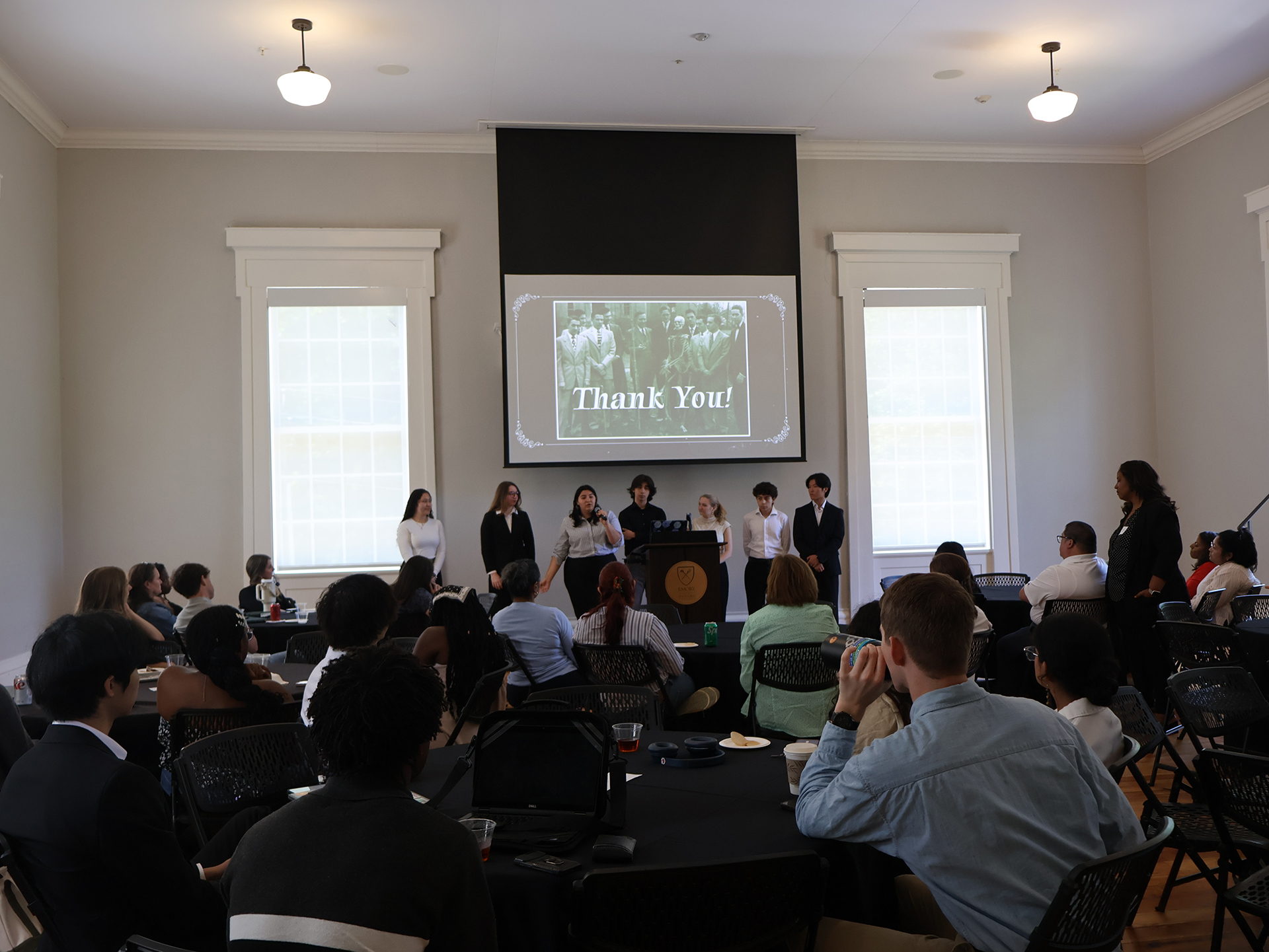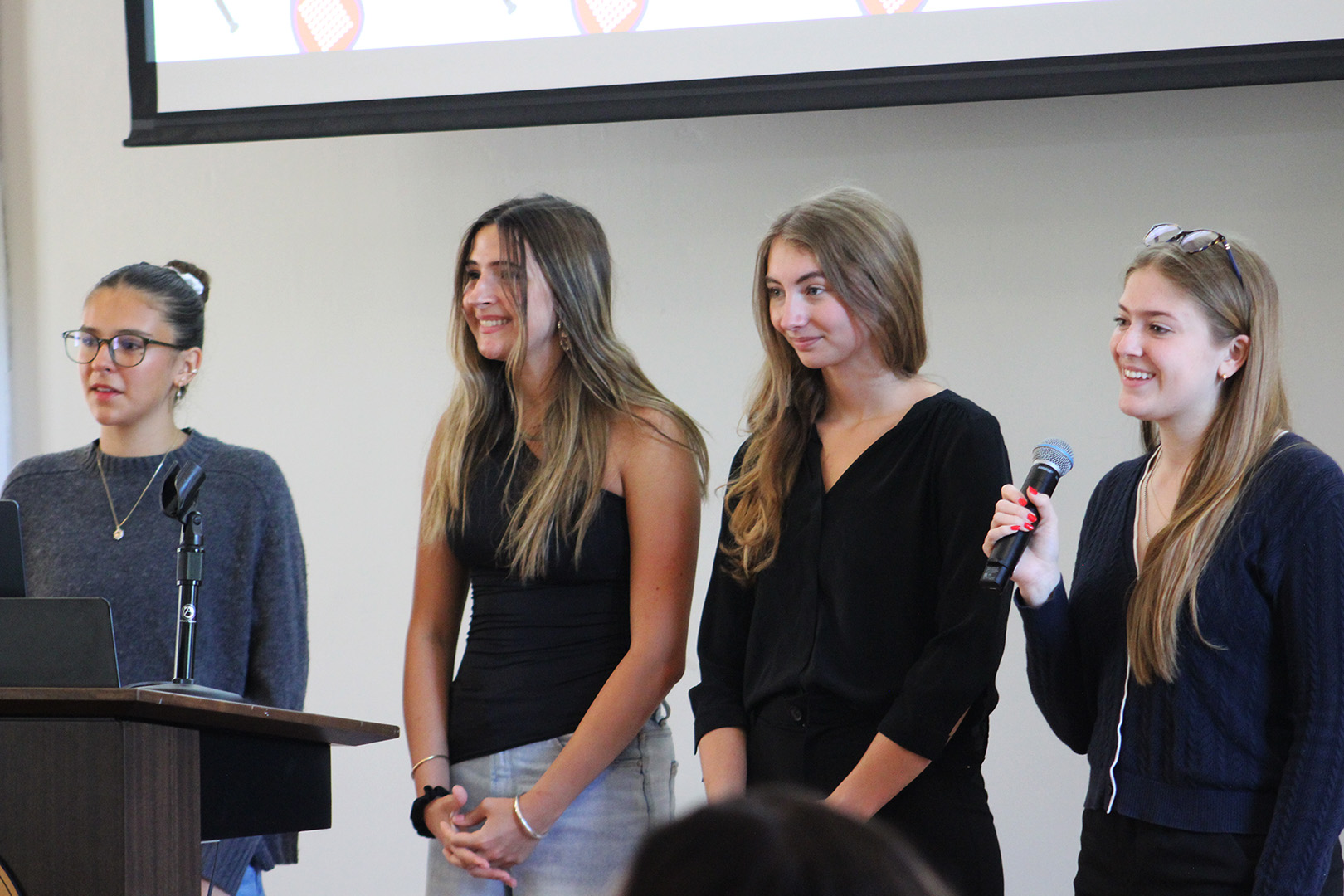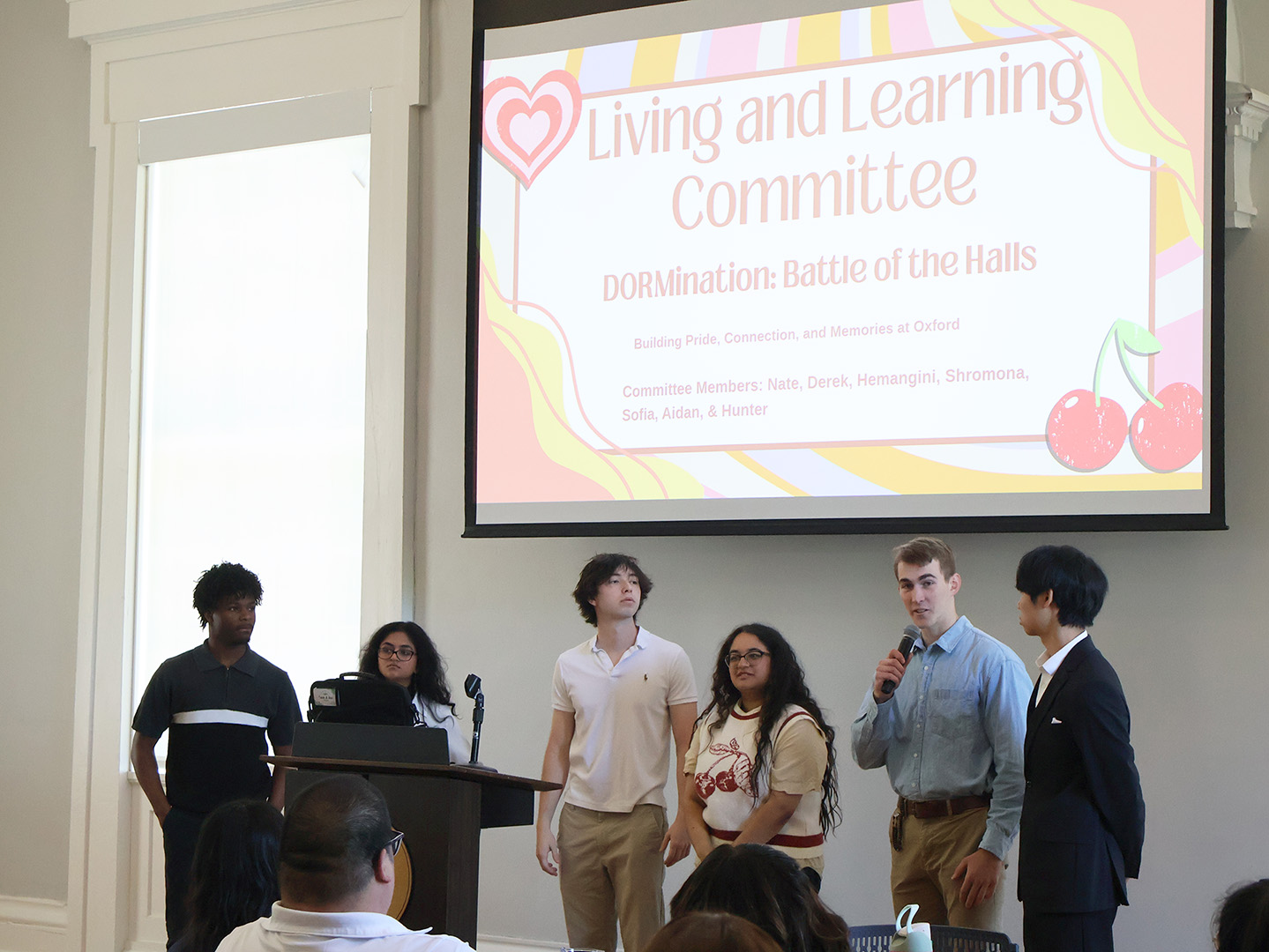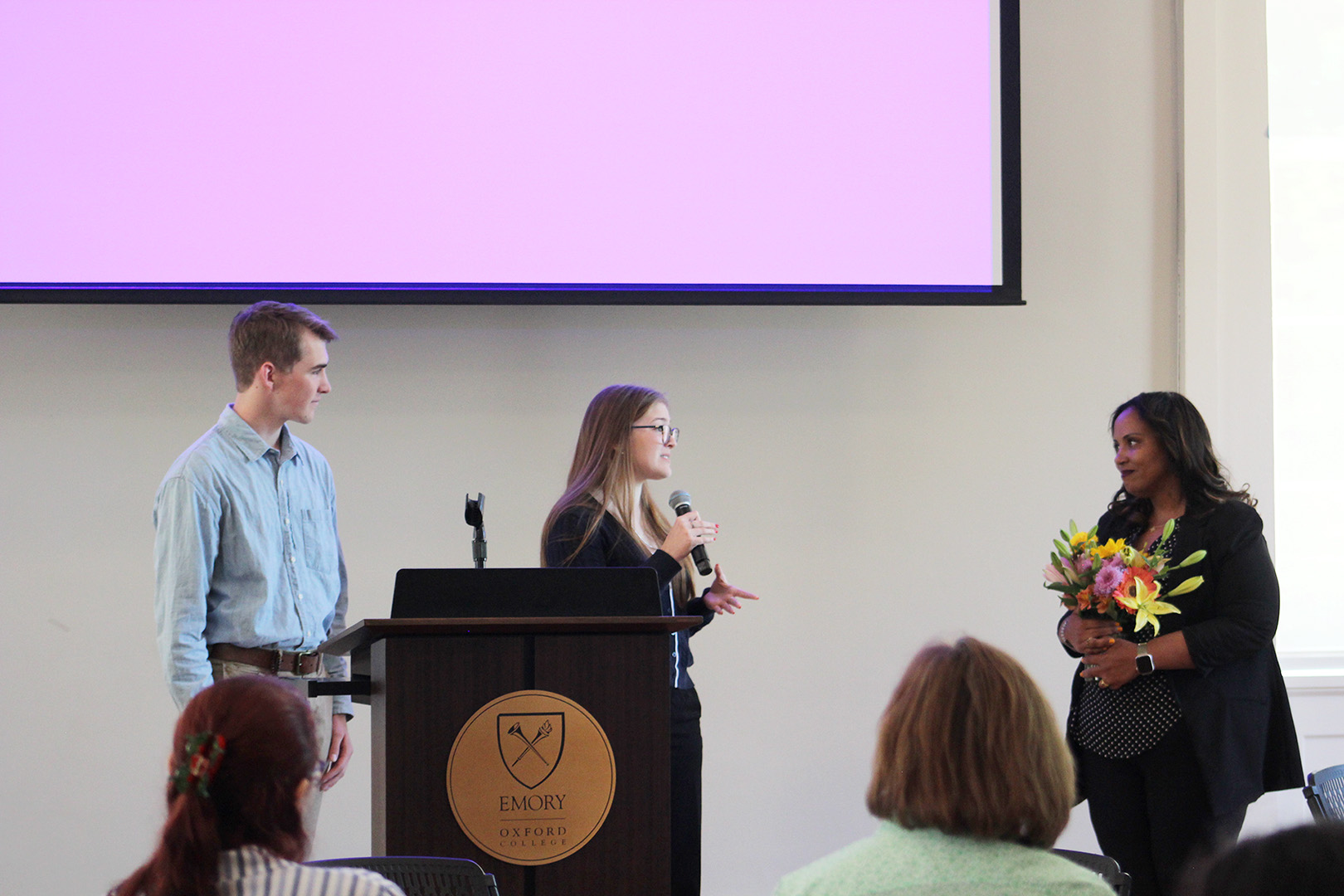Reimagining first year council: A community of practice approach
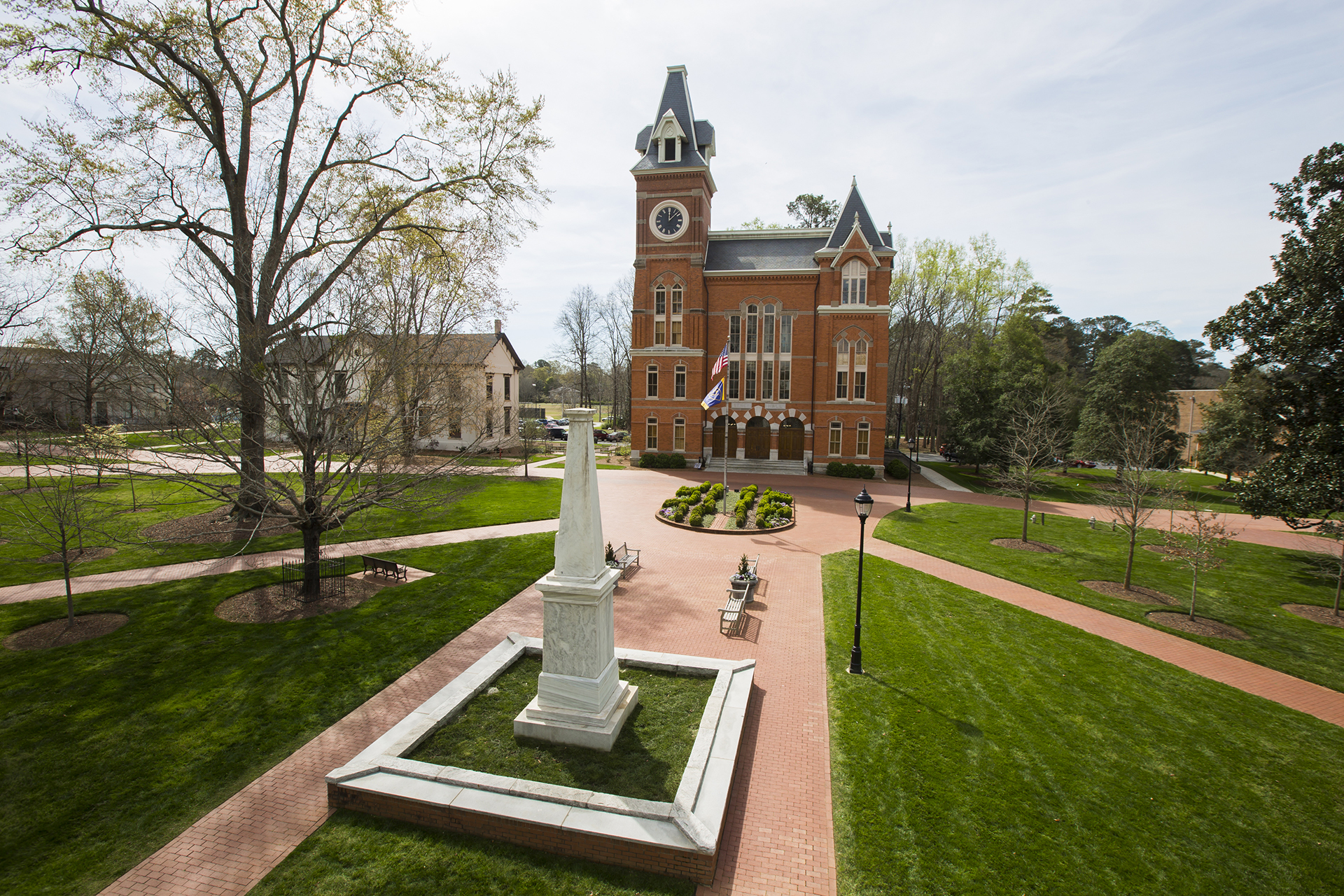
Oxford College’s First Year Council (FYC) showcased a transformative approach to student leadership at an end-of-semester presentation on Monday, April 28, in Phi Gamma Hall.
The event highlighted a semester-long effort by 28 first-year students to redesign the FYC into a dynamic “Community of Practice” model focused on student connection, collaborative learning, and shared ownership.
The showcase drew students, faculty, and staff who gathered to hear proposals from three student-led committees, each addressing a central dimension of the first-year experience: Engagement & Campus Spirit, Living & Learning Communities, and Celebration & Storytelling. Each team presented original concepts and pilot ideas aimed at building a more vibrant, inclusive, and joyful Oxford campus environment.
“First Year Council has taught me the key skills in teamwork, communication, productivity, and, most importantly, how to get a project done. I'm proud of what my committee has done, and I hope to continue the tailgate as a new tradition at Oxford!”
The Engagement & Campus Spirit committee focused on strengthening school pride and community connections, both on the Oxford campus and between Oxford and Emory’s Atlanta campus. Their ideas included campus-wide spirit initiatives and shared events aimed at fostering a sense of belonging.
The Living & Learning Communities committee proposed transforming residence halls into theme-based environments that extend learning beyond the classroom. Ideas included interest-based housing, peer-led workshops, and co-curricular experiences that align with academic and personal interests.
The Celebration & Storytelling committee explored ways to amplify student voices and traditions through storytelling platforms, community events, and recognition of individual and collective achievements across campus.
The Community of Practice model not only supports creativity and collaboration but also encourages continuity by inviting first-year council members to return as sophomore mentors. This structure helps maintain institutional knowledge and ensures sustained momentum for student-led initiatives.
“Through my work with the First Year Council, I’ve seen firsthand how powerful it can be when administrators and students engage in honest, meaningful dialogue. These students have not only raised important questions about their Oxford experience—they’ve helped shape positive outcomes. It is particularly meaningful that first-year students understand from the start that we share a common purpose and are working side by side to create the best possible experience. This affirms my belief that transformative change is possible when we lean into the challenge of support, ask deep questions of the institution, and build a campus life culture rooted in care, accountability, action, and relationship—where we could collectively flourish.”
As Oxford College continues to invest in student engagement and leadership development, this new model for the First Year Council represents a forward-thinking step. By centering connection, purpose, and student voice, the Community of Practice model offers a promising framework for future student leadership at Oxford College.
